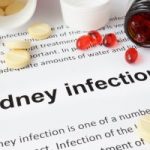 World Kidney Day was Thursday March 9, 2017 and the campaign raised awareness about the importance of kidneys to our overall health. In recognition of this global awareness campaign, Bel Marra Health has compiled a list of informative articles related to kidney health and included information regarding the urine specific gravity test, kidney failure, the renal diet, and pyelonephritis.
World Kidney Day was Thursday March 9, 2017 and the campaign raised awareness about the importance of kidneys to our overall health. In recognition of this global awareness campaign, Bel Marra Health has compiled a list of informative articles related to kidney health and included information regarding the urine specific gravity test, kidney failure, the renal diet, and pyelonephritis.
Urine specific gravity test: How well your kidneys are diluting your urine
A urine specific gravity test is a painless way for a doctor to check how your kidneys are diluting your urine and how they are functioning.
Advertisement
In order for our bodies to work properly, they must contain the right amount of water. The kidneys have the important job of removing excess water from the body or retaining it when the body needs more fluid. When the kidneys are working well, extra minerals like sodium and potassium leave the body in the form of urine.
A urine specific gravity test—or urine density—may be performed if a doctor suspects you are dehydrated or have a condition such as heart failure. Basically, the test compares the specific gravity of urine to the density of water. Urine that is too concentrated could signal that your kidneys are not functioning properly. It could also simply mean that you aren’t drinking enough water. Continue reading…
 Kidney failure patients’ risk of early mortality increases with cardiovascular causes
Kidney failure patients’ risk of early mortality increases with cardiovascular causes
Kidney failure patients face a higher risk of dying early due to cardiovascular causes. The study found that dialysis patients may have altered blood clotting, which increases their risk of bleeding and stroke.
The researchers analyzed the blood of 171 chronic hemodialysis patients and found that they had denser clot structures compared to patients without kidney disease. Furthermore, patients with compact clots were at a higher risk of death from cardiovascular causes, along with a higher risk of mortality from other causes too. Lastly, in dialysis patients, the protein that is actively participating in the clotting process—fibrinogen—exhibits certain modifications that are different from patients without kidney disease. Continue reading…
 Chronic kidney disease patients can live longer with healthy diet: Study
Chronic kidney disease patients can live longer with healthy diet: Study
Chronic kidney disease patients can live longer with a healthy diet. The researchers analyzed seven studies that included over 15,000 chronic kidney disease (CKD) patients. The researchers wanted to evaluate the impact of a healthy diet—fruits, vegetables, fish, legumes, whole grains—on CKD (if any).
In six of the studies, a healthy diet was associated with 20 to 30 percent lower rate of early death, but the study did not directly prove that a healthy diet would extend life.
Study lead Dr. Giovanni Strippoli explained, “Chronic kidney disease now affects about 10 percent to 13 percent of the adult population and substantially increases risks of cardiovascular complications and early death. In the absence of randomized trials and large individual cohort studies, this study is the best available evidence to drive clinical decision-making by patients and doctors on whole dietary approaches in chronic kidney disease.” Continue reading…
 Renal diet: Foods to eat and avoid for kidney failure
Renal diet: Foods to eat and avoid for kidney failure
A renal diet is recommended for patients with renal disease or kidney failure. Kidney failure patients require a specialty diet because, as the function of the kidneys diminishes, processing certain foods becomes more difficult. Following a diet that is less taxing on the kidneys can improve health outcomes.
Even if a person has kidney disease, it is important to stick with a renal diet specially designed to improve kidney function in order to prevent kidney failure.
A renal diet aims to reduce the intake of protein and phosphorus-rich foods along with limiting calcium, sodium, and potassium. By following a renal diet, patients can reduce the amount of waste the body produces in order to improve kidney function. Continue reading…
 Pyelonephritis (kidney infection): Causes, symptoms, and treatment
Pyelonephritis (kidney infection): Causes, symptoms, and treatment
Pyelonephritis (kidney infection) is a result of a urinary tract infection (UTI) that moves to the upper urinary system, which includes the kidneys. The kidneys’ function is to filter blood and produce urine. Urine is carried to the bladder through the ureters where it is then expelled from the body.
Advertisement
Pyelonephritis is often a complication of a urinary tract infection. A UTI occurs when bacteria enter the urinary system. It can become quite a serious condition if the infection spreads to the blood. For the most part, kidney infection is always treated with antibiotics.
E.coli is a common bacterium that can cause a UTI and a kidney infection. When proper urine flow is restricted, bacteria can make their way up to the kidneys. People with a weakened immune system, diabetics, and those with kidney stones are at a higher risk for kidney infection as well.
Kidney infections, and UTIs in general are more commonly seen in women because their urethra is much shorter than that of men’s, so bacteria have a shorter route to travel in order to reach the urinary tract system. Continue reading…
